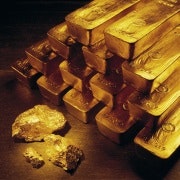Britain will be poorer for Scotland the brave
The fateful day is September 18. A referendum in Scotland on that date will decide whether the bell tolls for the United Kingdom of Great Britain and Northern Ireland.
As the polls stand today, only 40 per cent of Scots will vote for complete independence. But there is a strong romantic streak among the Scots; the flamboyant independence campaign is well led. It’s not all over yet. Meanwhile, the English are finally becoming conscious of the huge economic and political implications of a possible ‘yes’ vote.
Scottish nationalism is a recent phenomenon. When I worked in Glasgow half a century ago, politics comprised two parties: Labour and Tory unionists. The Scottish National Party did not win a seat in Westminster until 1973. Then Thatcher killed off the Scottish Tories, the SNP in opposition elected a canny populist leader called Alex Salmond, and Tony Blair delivered a devolved Parliament in Edinburgh. When the SNP won power in 2011, Salmond pressed relentlessly for a referendum. It was granted on the basis that the vote would be a straight ‘in’ or ‘out’ affair.
There is enough Irish in me to appreciate the romance of independent nationhood. I thought then that if the Scots wanted it, they should have it. I still do – but the English in me finds the economic case against separation compelling.
It is, however, no longer an academic debate. Reality has finally begun to surface, though an Alice-in-Wonderland quality still pervades the whole business. The SNP has tried to reassure its electorate that by conceding, that the Queen would remain Queen of Scotland and the pound would remain the currency. Scots would even be permitted to remain loyal to the British Broadcasting Corporation.
No revolution, then. But some of the SNP’s long-held expectations have already been dismantled. Initially, Salmond was an enthusiast for Scottish membership of the euro. Successive crises have changed all that, even if staying with the sterling means setting interest rates in London.
The SNP assumed that an independent Scotland would be automatically welcomed into the EU. Not so, the Brussels bureaucrats have said. An application to join as a new member would be required – and it could easily fall victim of internal EU politics. The Spanish might oppose Scotland’s application so as to discourage independence movements in Catalonia and the Basque country.
The SNP proposes to join NATO, which embraces nuclear weapons in its arsenal. But the SNP rejects nuclear weapons and, should they win, would demand that the English remove the nuclear submarine base at Faslane in the Firth of Clyde at enormous cost. No one has a plan to square this circle.
When the Irish wished to be free of England, they were motivated by a powerful dislike of England and the English. There are elements among the nationalists in Scotland who also feel strongly, though never strongly enough to take to the streets as the Irish did at Easter 1916. But Scots tend to be more pragmatic, and the question that dominates the referendum debate is about the economy: will Scots in an independent Scotland be better or worse off.? At the moment, a small majority thinks that Scotland would be worse off. Women are more strongly against the proposal than men.
The SNP is a political coalition in which the most influential strain is Social Democratic. Scottish university students pay no fees, though the universities charge English students to study there. Care for the elderly is free and the SNP promises more benefits post-independence, such as child care. The cost of these welfare bonuses is met by funds from central government. Public spending per head is significantly higher in Scotland (£11,800 compared to £10,600 in Britain as a whole).
Salmond is sanguine about the economics of independence. The cost will be met, he states, by income from North Sea oil. Simple as that. Oil taxes would provide 15 per cent of public spending in Scotland (it stands at 1.6 per cent in the UK now). A variety of economists conclude that, in the short term, the outlook for an independent Scotland would be tolerable. Businessmen are not at all sure.
In the long term, not only are we are all dead, but oil prices move in unpredictable ways. The price may rise over the years, but the trend is downward. It will be influenced by two factors. One is the difficult and expensive drilling operations in the North Sea; the second is the impact of cheaper oil from fracking in the US on world prices.
Uncertainty about future revenues would no doubt influence the cost of borrowing in international debt markets. Dependence on a single commodity means the Scots would be charged higher interest rates than developed economies, such as England.
The English, who have taken no more than a desultory interest in the debate so far, are now waking up. If Scotland were independent, the rest of the British economy would drop from 7th among the world’s trading nations to 13th. Transition negotiations would inevitably be a treacherous, drawn-out business, spreading uncertainty at a time when Britain will also be contemplating its future membership of the EU.
In a Financial Times survey published in the New Year, 27 out of 31 British economists questioned said that a ‘yes’ vote would be disastrous for the UK as a whole, not just for Scotland.
Prime Minister David Cameron, our Panjandrum of public relations, tells us that the economic case against independence has been made. But hearts have still to be won. He is right to take nothing for granted. There is still time for a romantic rediscovery of the idea of independence in Scotland. The Irish in me would applaud, but the English bit would certainly regret it.
















